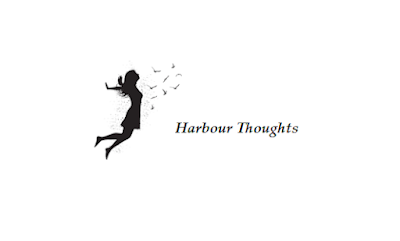Fallen in Battle
By H.R. Bandaharo
nine hours after the battle
there he lies
rifle at his side
and his breast pierced with bullets
deadly silence all around
broken by his panting breath
he raises up his head
as if in doubt:
there it is
the rustling of wings
is it the angel of death?
almost weary of waiting
suddenly from far away
he hearts the shout of victory
carried by the wind
to the lonely fighter
freedom! freedom!
his very being shouts for joy
this cry is his reward.
in the battle for which he staked his life
freedom means victory
and the free man lives in paradise
a new strength surges through him
covered as he is with is blood
he musters all the will in his feeble body
pressing his hands on the soil he defended
he rises slowly
he shouts and clenches his fists
freedom! freedom!
this was the last sound he uttered
joy in his heart
victory in battle
he stepped forward
and fell.
Source: Contemporary Progressive Indonesian Poetry, 1962
Poem Analysis:
H.R. Bandaharo’s poem Fallen in Battle encapsulates the harrowing yet triumphant experience of a soldier on the battlefield, reflecting themes of sacrifice, the quest for freedom, and the profound emotional turmoil inherent in conflict. Through vivid imagery and poignant language, the poem explores the soldier’s final moments, intertwining physical suffering with an overarching sense of hope and liberation.
Theme of Sacrifice and Suffering
The poem opens with a stark image of the soldier's state: “there he lies / rifle at his side / and his breast pierced with bullets.” This powerful imagery establishes the brutality of war and the physical toll it takes on those who fight. The juxtaposition of the soldier’s lifeless body with the rifle, an emblem of his struggle, underscores the themes of sacrifice and mortality. The phrase “deadly silence all around” conveys the emptiness that follows the chaos of battle, emphasizing the isolation and despair that accompanies death.
The line “broken by his panting breath” introduces a glimmer of life amid the stillness, highlighting the soldier’s tenuous grasp on existence. The imagery of “panting breath” serves to illustrate his suffering, reinforcing the physical pain he endures even in his final moments. This tension between life and death creates an emotional weight that permeates the poem.
Hope and the Quest for Freedom
Amidst the grim setting, the poem introduces a shift in tone with the soldier’s realization of a distant victory: “suddenly from far away / he hears the shout of victory / carried by the wind.” This moment signifies a turning point, as the soldier is awakened not just to the sounds of battle, but to the promise of “freedom! freedom!” The repetition of the word “freedom” serves as a rallying cry, imbuing the poem with a sense of purpose and determination.
The exclamation “his very being shouts for joy” suggests that the idea of freedom transcends his physical suffering, igniting a profound emotional response. The soldier's joy is framed as “his reward,” indicating that despite the pain and sacrifice, the ultimate goal of liberation is worth the struggle. This notion positions freedom not only as a political ideal but as a deeply personal achievement, emphasizing the emotional significance of the soldier’s fight.
The Duality of Battle: Triumph and Tragedy
As the soldier gathers strength, the poem captures the duality of his experience: “a new strength surges through him / covered as he is with his blood.” The imagery here reveals a paradox; while blood symbolizes pain and sacrifice, it also signifies the vitality and resilience of the soldier’s spirit. The phrase “pressing his hands on the soil he defended” reflects a deep connection to the land and the cause for which he fights. This physical act of touching the soil transforms into an emotional declaration of commitment and loyalty to his homeland.
In his final moments, the soldier rises and shouts “freedom! freedom!” This act of defiance and determination encapsulates the essence of his struggle. The simultaneous act of rising and falling—“he stepped forward / and fell”— poignantly illustrates the tragedy of sacrifice. It underscores the notion that victory often comes at a steep cost, and the soldier’s ultimate demise serves as a reminder of the fragile nature of life amid conflict.
Structure and Language
The poem employs a free verse structure, allowing Bandaharo to convey the raw emotions of the soldier without the constraints of traditional poetic forms. The pacing varies, with shorter lines intensifying moments of tension and longer lines allowing for reflection and contemplation. This dynamic structure mirrors the unpredictable nature of battle, enhancing the emotional impact of the poem.
Bandaharo’s language is rich with sensory detail, employing vivid imagery to evoke the physical and emotional experiences of the soldier. Phrases like “blood,” “panting breath,” and “the rustling of wings” immerse the reader in the scene, creating a visceral connection to the soldier’s plight. The use of exclamation marks in “freedom! freedom!” conveys urgency and fervor, reinforcing the intensity of the soldier's emotions.
A Reflection on Valor and Redemption
Fallen in Battle by H.R. Bandaharo is a powerful exploration of the complexities of war, sacrifice, and the enduring quest for freedom. Through evocative imagery and emotional depth, the poem captures the soldier's final moments as he confronts the dual realities of suffering and triumph. The intertwining themes of pain and liberation reflect the broader human experience, reminding readers of the costs associated with the pursuit of justice and autonomy.
Ultimately, Bandaharo’s work serves as a poignant tribute to those who sacrifice their lives for the ideals they hold dear. The soldier's final cry of “freedom” resonates as a universal call to resist oppression and strive for a better future, encapsulating the spirit of hope that endures even in the face of adversity. In celebrating both the valor of the individual and the collective struggle for liberation, Fallen in Battle stands as a testament to the resilience of the human spirit.
